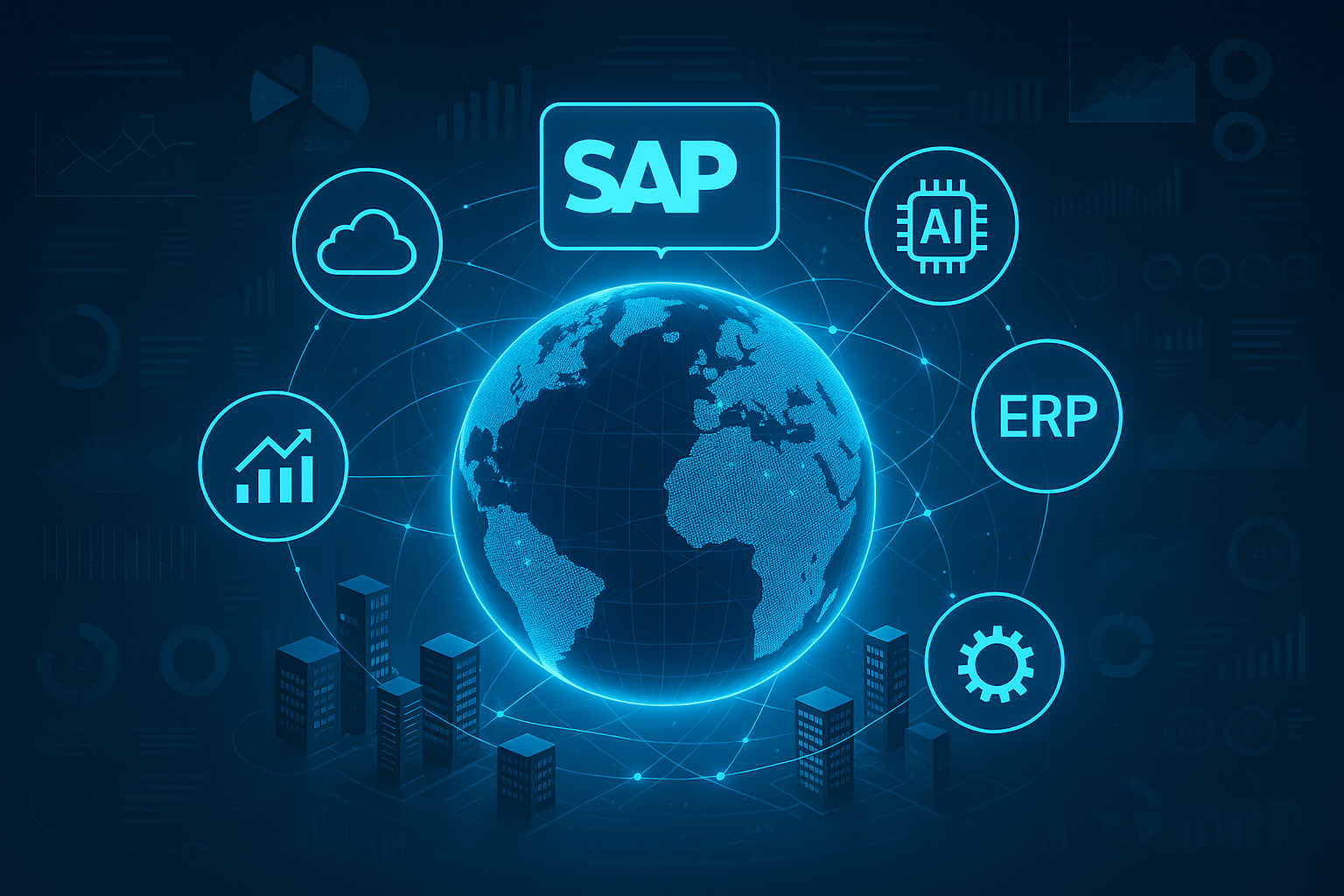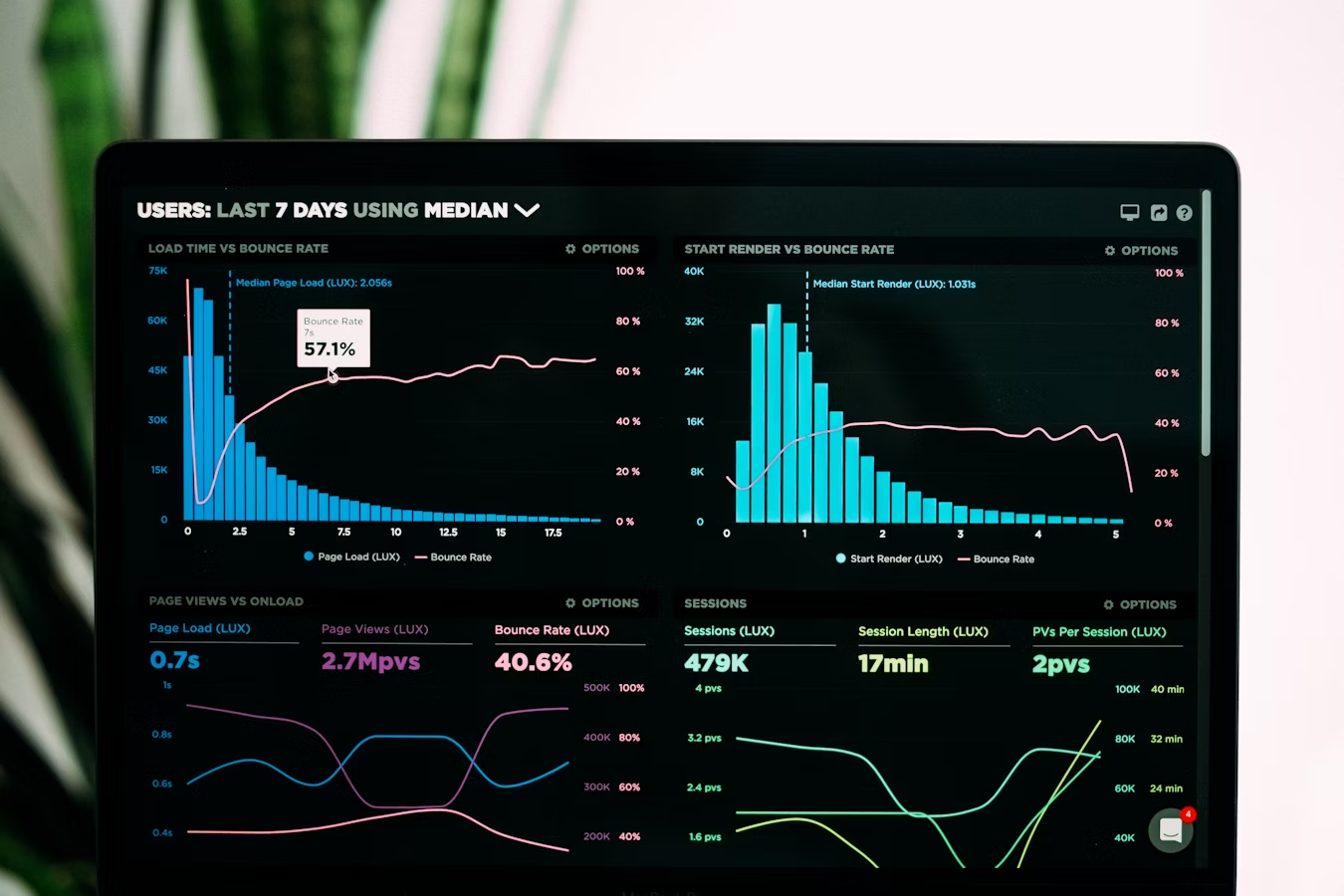Global SAP Consulting Market Leaders: 2025 Comprehensive Analysis
Global SAP Consulting Market Leaders: 2025 Comprehensive Analysis
A comprehensive analysis of the top 10 SAP consulting firms dominating the global market, based on revenue scale, workforce expertise, analyst recognition, and strategic partnerships. This guide provides decision-makers with essential insights for selecting the right consulting partner for their SAP transformation initiatives.
The SAP consulting market has undergone fundamental transformation over the past decade. What began as traditional ERP implementations focused on financial and operational processes has evolved into comprehensive digital transformation initiatives that integrate artificial intelligence, machine learning, and cloud-native architectures.
Modern SAP implementations now encompass predictive analytics, real-time supply chain optimization, and intelligent business process automation. This evolution has reshaped the consulting landscape, where market leadership is determined not solely by workforce size, but by the ability to deliver integrated solutions that combine deep SAP expertise with emerging technologies.
Enterprise decision-makers face increasing pressure to select consulting partners capable of navigating this complex technological landscape while delivering measurable business outcomes. Understanding which firms possess the necessary scale, expertise, and innovation capabilities becomes critical for successful SAP transformation initiatives.
Market Growth Projections
The SAP consulting market demonstrates exceptional growth trajectory, expanding from $311.30 billion in 2024 to a projected $1 trillion by 2033. This represents fundamental transformation in enterprise business operations and technology adoption patterns.
Market leadership in SAP consulting extends beyond simple revenue metrics, as major consulting firms generate substantial revenue from diverse service portfolios including tax, accounting, and strategic consulting. Effective evaluation requires assessment across multiple dimensions that indicate true SAP consulting capabilities and market influence:
Important Note on Revenue Data
Most major consulting firms don’t separately report SAP-specific revenue. The Big 4 firms (Deloitte, PwC, EY) and other diversified consultancies like Accenture generate substantial revenue from tax services, accounting, strategy consulting, and other practices. Our analysis combines total firm revenue with SAP workforce size and market recognition to provide the most accurate assessment possible.
Substantial SAP-Dedicated Workforce
Market leaders maintain workforces of 10,000+ SAP-certified professionals. Deloitte employs over 30,000 SAP-focused consultants, while TCS fields more than 36,000 SAP-skilled professionals. These represent dedicated specialists with deep S/4HANA expertise, not generalists with basic SAP knowledge.
Analyst Recognition
Consistent “Leader” status in Gartner Magic Quadrants, IDC MarketScapes, and Forrester Waves. These evaluations represent rigorous assessments of capability, execution, and market impact based on comprehensive methodology and client feedback.
SAP Global Strategic Partnerships
Official recognition from SAP as Global Strategic Partners, representing deep collaboration, early access to product roadmaps, co-innovation opportunities, and preferential support for complex enterprise implementations.
Global Scale & Innovation
The ability to handle multinational deployments while continuously investing in cutting-edge technologies like AI, automation, and cloud-native solutions.
Based on comprehensive analysis of total firm revenue, SAP workforce size, analyst recognition, and partnership status, here are the dominant forces in the global SAP consulting market:
Accenture
Accenture maintains market leadership through their “SOAR with Accenture” program, which accelerates RISE with SAP implementations. Their strategic focus on AI-embedded services positions them as architects of intelligent enterprise solutions, extending beyond traditional SAP implementation to comprehensive digital transformation.
Deloitte
Deloitte’s “Kinetic Enterprise” methodology emphasizes continuous transformation over traditional one-time implementations. Their “Brownfield+” offering leverages AI to accelerate S/4HANA migrations, demonstrating proven capability in managing complex enterprise transformations across diverse industry verticals.
IBM
IBM demonstrates exceptional commitment by migrating their entire $58 billion revenue operation through SAP systems, providing real-world validation of their implementation methodologies. Their Power Virtual Server offering for RISE with SAP delivers robust infrastructure capabilities, with documented 90-day migration timelines representing industry-leading efficiency.
TCS (Tata Consultancy Services)
TCS demonstrates exceptional innovation in GenAI integration through their “Agile Innovation Cloud” framework and TCS Pace Port™ network spanning 12 cities. Their proprietary tools like ACE+ represent significant advances in automated SAP system analysis and optimization.
Capgemini
Capgemini’s leadership in sustainability-focused SAP implementations sets them apart in the market. Their “clean-core, multi-pillar S/4HANA architecture” approach demonstrates forward-thinking strategy, earning them top scores in vision and global delivery in Forrester’s evaluation.
PwC
PwC’s strategic partnership with OpenAI establishes them as the first authorized reseller for ChatGPT Enterprise, creating significant differentiation in AI-powered SAP implementations. Their “Transcend with PwC” framework addresses clients across all market segments, emphasizing business transformation beyond technology deployment.
Infosys
Infosys excels in SAP BRIM implementations, helping companies unlock new revenue streams through innovative billing and monetization models. Their strategic partnership with Google Cloud for SAP modernization creates compelling hybrid cloud opportunities for enterprise clients.
HCLTech
HCLTech’s proprietary frameworks including “Elevate” and “Migrate+” provide significant value in de-risking S/4HANA migrations. Their investment in automated tools and rapid deployment methodologies demonstrates strong capabilities in complex enterprise transformations, particularly with SAP BTP implementations.
EY (Ernst & Young)
EY’s differentiated approach focuses on post-migration ROI optimization, addressing a critical gap where many organizations struggle to realize expected value from their cloud ERP investments. Their strategic entry into SAP PartnerEdge as a managed services provider demonstrates long-term commitment to client success.
NTT DATA
NTT DATA demonstrates strong positioning in the SME market segment with impressive cloud subscription sales growth, doubling revenue every two years. Their robust presence in the Asia-Pacific region, backed by the $30+ billion NTT Group, provides substantial resources for continued innovation and market expansion.
The SAP consulting market transformation extends beyond simple growth metrics. Three critical factors are reshaping competitive dynamics and client expectations across the enterprise software landscape:
ECC Support Deadline Creates Migration Wave
SAP’s decision to end ECC support in 2027 has created unprecedented demand for S/4HANA migration services. Organizations now face mandatory transformation timelines, fundamentally shifting from voluntary upgrades to business-critical initiatives. Consulting firms capable of executing rapid, low-risk migrations are positioned to capture significant market share during this concentrated demand period.
AI Transforms Core SAP Functionality
Artificial intelligence integration has evolved from supplementary features to core system functionality within SAP environments. Predictive analytics, automated decision-making, and intelligent process optimization now form the foundation of competitive SAP implementations, requiring consulting expertise that extends beyond traditional ERP knowledge.
Cloud-Native Architecture Dominance
Enterprise preferences have decisively shifted toward cloud-native SAP deployments, with RISE with SAP accelerating adoption among traditionally conservative organizations. This transition prioritizes operational agility and innovation velocity over legacy infrastructure investments, creating new consulting requirements around cloud architecture and change management.
ESG Becomes Core Business Function
Environmental, social, and governance considerations have transitioned from compliance requirements to strategic business functions within SAP implementations. Carbon footprint monitoring, sustainability reporting, and ESG analytics are increasingly integrated as standard system capabilities rather than optional modules, reflecting regulatory demands and stakeholder expectations.
Size matters in SAP consulting, but it’s more nuanced than simple rankings suggest. What we’re seeing across enterprises is that the “biggest” firm isn’t always the right fit, particularly when you factor in industry expertise, cultural alignment, and specific transformation requirements.
That said, these top 10 players bring capabilities that smaller boutique firms simply can’t match. The combination of global scale, cross-industry experience, and R&D investment in emerging technologies creates a compelling value proposition for complex, multi-year initiatives. When you’re betting the business on a transformation, financial stability and proven methodologies become critical factors.
Large enterprises with multinational complexity tend to gravitate toward the top 5 (Accenture, Deloitte, IBM, TCS, Capgemini) for good reason – they’ve got the bandwidth and battle-tested frameworks. Mid-market companies often find better value with firms 6-10, where you’ll typically get more senior attention and customized approaches without sacrificing core capabilities.
Looking ahead, the 2027 deadline creates urgency, but smart organizations are evaluating partners based on AI readiness and cloud-native expertise, not just migration speed. The consulting landscape will likely consolidate further as these technological shifts separate the leaders from the followers.
How do I choose the right SAP consulting firm for my business size and industry?
Selection criteria should align with three primary factors: organizational size, operational complexity, and implementation budget. Large enterprises (1000+ employees) with multinational operations typically benefit from top-tier firms like Accenture, Deloitte, IBM, TCS, or Capgemini, which offer proven methodologies and global scale for complex transformations.
Mid-market organizations (100-1000 employees) often find optimal value with firms like PwC, HCLTech, Infosys, or EY, which provide specialized expertise while maintaining personalized engagement models. These firms deliver enterprise-grade capabilities without overwhelming smaller organizations with unnecessary complexity.
Industry specialization becomes critical in consultant selection. Manufacturing companies should prioritize firms with supply chain optimization expertise, while financial services organizations need consultants experienced in regulatory compliance and risk management frameworks. Market leadership doesn’t always translate to industry-specific competency.
What should I expect to pay for SAP consulting services from these top firms?
SAP consulting costs demonstrate significant variation based on project scope, complexity, and firm positioning. Top-tier consultancies (Accenture, Deloitte, IBM) typically charge $200-400+ per hour for senior resources, with total project investments ranging from $1-5 million+ for mid-to-large scale implementations.
Second-tier firms (PwC, HCLTech, Infosys) generally operate within $150-300 hourly ranges, creating more accessible pricing for mid-market organizations. However, total cost evaluation should prioritize implementation quality and timeline adherence over hourly rates alone.
Accelerated, high-quality implementations often demonstrate superior ROI compared to lower-cost alternatives that experience delays, scope creep, or post-implementation issues. Fixed-price engagements can provide budget certainty, though requiring detailed scope definition upfront. Reference checks with similar-sized organizations in comparable industries remain essential for validation.
With the 2027 SAP ECC deadline approaching, how urgent is it to start a migration project?
Migration urgency extends beyond the 2027 support deadline to include consultant availability and project resource allocation. Organizations remaining on SAP ECC face increasing competition for experienced implementation teams as the deadline approaches.
Market dynamics indicate that premium consulting talent is becoming increasingly scarce, with experienced project teams booking 18+ months in advance. Complex implementations typically require 12-24 months execution time, plus additional months for planning, vendor selection, and resource allocation.
While IBM promotes 90-day migration timelines through their Power Virtual Server offering, these apply to specific infrastructure scenarios with limited customization requirements. Most enterprise implementations should budget 18-24 months from initiation to go-live. Early engagement provides access to top-tier consulting talent and avoids premium pricing associated with last-minute demand surges expected in 2025-2026.
Share this content:


Post Comment